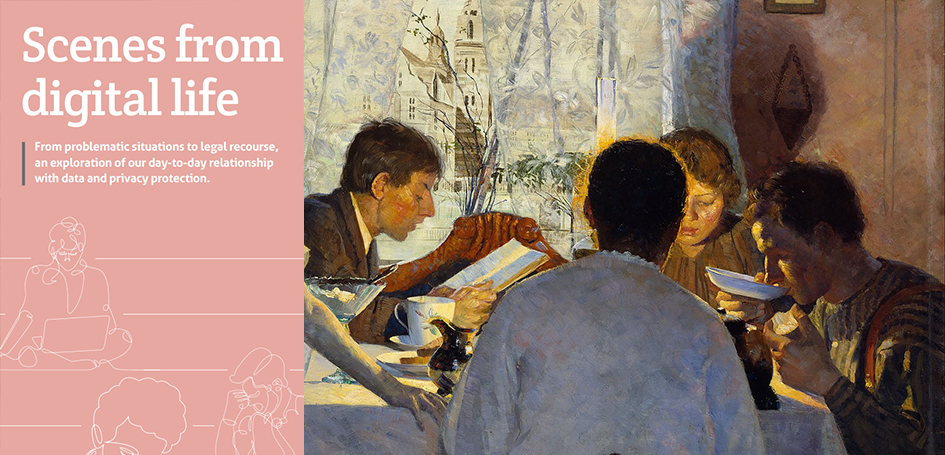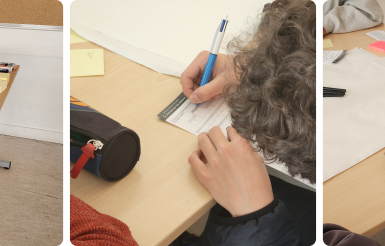IP Report : Scenes from Digital Life - An exploration of the everyday relationship with data protection and privacy
The eighth Innovation and Prospective Report analyses the daily relationship of individuals to the protection of their personal data and privacy in order to understand the ways in which they resort to the law, in particular through an analysis of complaints and letters received by the institution.

This new IP Paper, entitled "Scenes from digital life", explores the tensions between our use of technology and the protection of data and privacy.
Since the 19th century, in Europe and in the United States, the rights associated with privacy have developed in opposition to the issue of intrusion, until the notion of informational self-determination emerged: allowing individuals to control the circulation of information about themselves. In this context, the right to personal data protection will develop, giving people certain technical rights that give them control over their data.
However, our digital practices are deeply social: they are part of diverse social contexts, unequal power relations and socio-economic structures whose framework is imposed. Not everyone has access to the same knowledge and resources or is affected in the same way in their relationship to technology or data collection. All this can contribute to hindering the ability of individuals to effectively master these flows of information and data. The result is a wide variety of behaviour regarding the protection of one's data and privacy, depending on age, membership of certain social groups, etc.
Four problematic situations
An exploratory analysis of the complaints and letters received by the CNIL was then carried out in order to understand the reasons for recourse to the law, but also what individuals consider to be violations of their privacy. This analysis made it possible to determine four main social situations in which people turn to the law:
- the protection of their online reputation,
- the intrusion of commercial prospecting into their private lives,
- surveillance at work,
- registration in national files deemed to be unjustified.
Three preliminary stages
Beyond the situations and motivations that lead individuals to assert their rights before the institution, the exploration of the complaints and letters also made it possible to identify the paths that led them there. These are the result of an uncertain process, in which three preliminary steps were identified:
- the data infrastructure must be made visible to the individual,
- he must feel victimised by the data processing,
- and he must be in an asymmetric situation that does not allow him to resolve the situation alone.
These steps lead to inequalities in the recourse to the law by individuals: depending on their skills and knowledge, depending on the possibilities of access to rights set up by the organisations, depending on the time they can devote to it... the paths to the law can thus become longer and more complex.
Thus, beyond the individual rights available to the person, collective levers must be developed to protect privacy. While the CNIL intends to continue the work it has begun internally with the research community to gain a better understanding of people's digital habits, at the end of this IP Report it also proposes ways of thinking about protecting individuals' privacy through these collective levers:
- continue the work undertaken to better understand everyday digital uses,
- make the data infrastructures visible,
- encourage the development of data intermediary bodies,
- produce positive prevention of digital uses and personal data protection.



